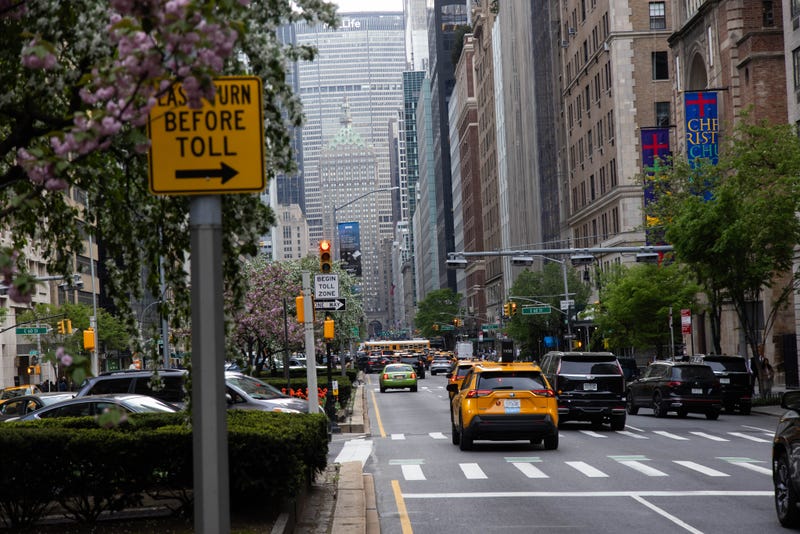
NEW YORK (BLOOMBERG) -- New York won a temporary freeze on potential Trump administration moves to withhold federal approvals or funds for the state’s transportation projects, as the president tries to end Manhattan’s congestion pricing program.
The administration has threatened to hold back the funds and permissions unless New York stops charging tolls to drive into the borough’s heavy-traffic zone. US District Judge Lewis Liman on Tuesday granted a request by the Metropolitan Transportation Authority for a court order barring such efforts by the government for now.
Liman’s ruling means the program — meant to reduce gridlock and pollution and raise money to modernize the city’s transit system — will almost certainly continue as the legal battle proceeds. It helps reduce uncertainty over how the nation’s largest public transportation system will pay to modernize a more than 100-year-old network.
The judge found that the MTA had demonstrated that it was likely to succeed in its claims. He said it would probably suffer “irreparable harm” without a temporary restraining order, noting that the government’s effort to undo US approval of the congestion pricing program had already affected the value of MTA bonds.
Cloud of Uncertainty
The program has operated under a cloud of uncertainty since it began almost five months ago, as President Donald Trump tries to stop it. The MTA sued US Secretary of Transportation Sean Duffy after he announced in a Feb. 19 letter that he was reversing US approval of the plan won under former President Joe Biden, even though the tolling had started on Jan. 5. The suit seeks a court declaration that the attempt to halt the program is illegal.
Trump has said the congestion pricing plan will hurt the local economy, and Duffy in February called it “a slap in the face to working class Americans and small business owners.”
Democratic Governor Kathy Hochul says the toll was urgently needed and has pointed to MTA data to show it is working. New York maintains it won’t stop the tolls unless the court tells it to.
The MTA runs the city’s subways, buses and commuter lines and is implementing the new toll. Its $68.4 billion 2025—2029 capital program is counting on $14 billion of federal funding.
Projects at risk in the near term include $2.2 billion of plans for subway and bus maintenance, along with railroad track work the state recently submitted for federal approval, according to court documents.
Duffy has threatened to start withholding authorizations and federal money as soon as Wednesday if the MTA continues to charge drivers under the congestion program. Most motorists pay $9 during peak hours to enter Manhattan south of 60th Street.
Growing Support
The toll brought in $159 million in the first three months of the program and is on target to raise $500 million this year after expenses, according to MTA officials. The MTA anticipates borrowing against the revenue collections to finance $15 billion of transit upgrades that will renew train signals from the 1930s, add elevators to stations and extend the Second Avenue Subway to Harlem.
The fee has helped ease traffic in the area. About 8.1 million fewer vehicles entered Manhattan’s central business district from the launch of the tolling through April, for a daily average decline of 11%, according to MTA data.
While many drivers grumble at paying more to get to work, appointments and other events, support for the toll is growing as people experience faster commutes and less traffic. A Siena College Poll conducted May 12-15 found that 39% of registered voters in the state want the fee to remain, up from 29% in December who supported it.
The case is Metropolitan Transportation Authority v. Duffy, 25-cv-1413, US District Court, Southern District of New York (Manhattan).
